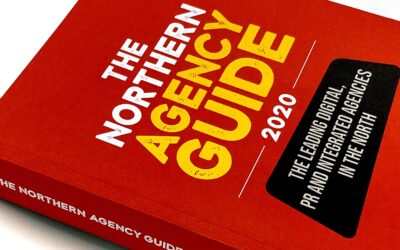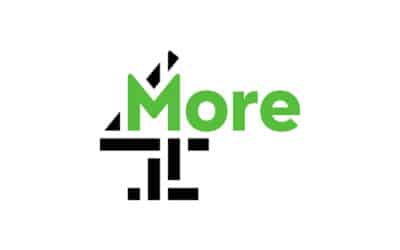The Co-founder of The Planning Department has shared his insights into why your agency should, in fact, be making you uncomfortable.
Steve McCarron says the challenge is to maintain the culture of challenge, forever.
This piece was originally published in the newly-released Northern Agency Guide, our in-demand bible for agencies and brands with marketing budgets. To read more contributions like this – as well as agency profiles and case studies – order yours here.
According to a recent poll, 39% of marketeers are intending to increase their strategic initiatives in the second half of 2020.
This is because the question of how to optimise success in 2021 is hugely challenging. Some are working through the impacts of continued COVID safety measures on their sector, whilst others are figuring out how an unprecedented lockdown-created recession will affect business.
If that wasn’t enough, they also need to work out the implications of longer-term structural changes such as working from home, the remote delivery of services, and the accelerating adoption of eCommerce and streaming technologies.
The challenge is to ensure that they have the right team and resources in place to answer the tough strategic questions ahead. Dominic Cummings’ solution for the Civil Service is to completely overhaul recruitment.
Instead of having homogeneous, middle-class Oxbridge graduates (like himself), he wants ‘weirdos and misfits’ who can look at problems from different perspectives, and with a challenger mindset.
This makes sense. There is growing evidence and agreement that ‘cognitive diversity’ is the best way to solve problems in complex domains.
This is because social and cultural problems – like marketing problems – are too complex for single individuals or homogenous teams to fully grasp in isolation. Individuals and teams have biases in terms of how they view the world which focuses their attention on certain variables and consequences more than others. This can prejudice the direction of strategy. The way to overcome this is to invite multiple perspectives, so that the team can consider the problem more holistically.
However, there is a flaw in Cummings’ plan.
The case for cognitive diversity has another dimension. Cognitive diversity works best when there is a challenger spirit alive and well. When you bring people in from the outside of the team, they are more likely to identify and challenge assumptions which are holding back the organisation. This is because a lack of familiarity enables them to see more clearly, and a lack of cultural conditioning frees them to speak up against orthodoxy.
The capacity to bring outside challenge to the team is a core dimension of why cognitive diversity works. However, Cummings’ plan will not be able to ensure this over time.
This is because even misfits and weirdos who ask challenging questions on day one later become institutionalised by the organisation themselves. Yesterday’s iconoclasts become part of the new culture and their radical ideas become tomorrow’s orthodoxy.
The challenge is to maintain the culture of challenge into perpetuity.
It is our belief that marketeers can enable this by having brilliant and diverse agency specialists who provide a breadth of perspective, as well as the challenging mindset to push their clients towards the best strategies and ideas.
So, if you’re a client, next time you think about your agency roster ask yourself whether you are set up to reap the benefits of cognitive diversity.
Do your agencies make you feel uncomfortable, because they challenge some of the beliefs you hold dear? They should.
Is their experience focused in different sectors with different brands to yours? It should be.
Have you got multiple agencies/specialists that see the world in different ways? You should.
Do you encourage research and insight that bring in the perspectives of real people? If not, it’s time to open up.
As we all try to get to grips with the challenges of change, it’s critical that diverse and eclectic agencies are encouraged to shine. It’s time to bring the misfits and weirdos in!
Find out what’s included in Prolific North’s print guide – the Northern Agency Guide – on top of deep-dive thought leadership pieces such as this. The guide’s now on-sale for £25, so order your copy today.









